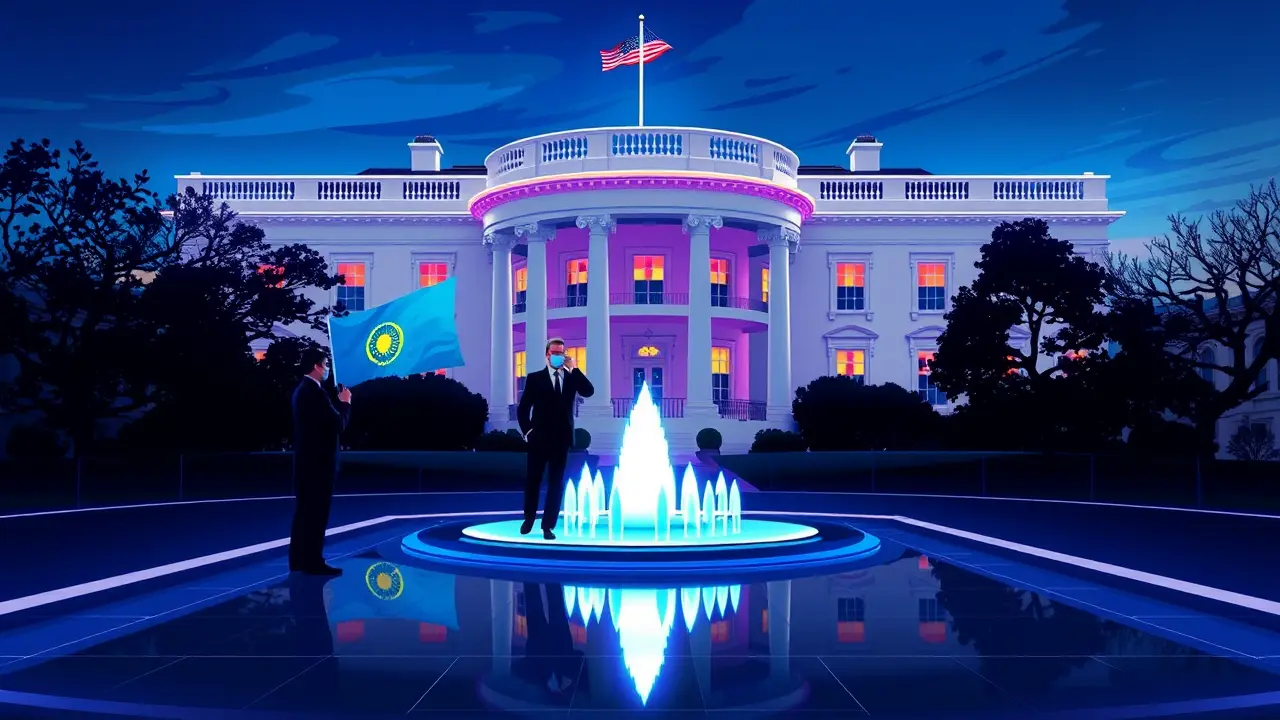
PoliticsdiplomacyBilateral Relations
Kazakhstan to join Abraham Accords in diplomatic move.
RO
Robert Hayes
4 hours ago7 min read1 comments
In a calculated diplomatic maneuver set to be announced during a White House summit on Thursday, Kazakhstan is poised to formally join the Abraham Accords, a move senior U. S.officials describe as a strategic effort to reinvigorate the Trump administration's signature foreign policy framework. This development, while not altering the fundamental relationship between Kazakhstan and Israel—which have maintained full diplomatic ties for over three decades—is intended to serve as a crucial first step in repairing Israel's severely damaged international standing following the Gaza war.President Kassym-Jomart Tokayev, seizing the opportunity of his meeting with President Trump, proactively reached out to the White House to express his nation's intention to join the accords, signaling a desire to upgrade existing relations with Israel, benefit from enhanced regional cooperation, and project an image of religious tolerance. The announcement is expected to be made during a joint call with Israeli Prime Minister Benjamin Netanyahu, with plans for a more formal signing ceremony at the White House involving the leaders of both nations and, ideally, other prospective members.For the Trump administration, this represents a low-risk, high-reward gambit; there is no history of conflict or travel restrictions between Israel and the Muslim-majority Kazakhstan, making the accession a straightforward diplomatic win. The deeper objective, however, lies in building momentum for the far more delicate and consequential task of bringing regional heavyweights like Saudi Arabia into the fold.This echoes the historical precedent of the original normalization agreements with the United Arab Emirates, Bahrain, and Morocco, which were the cornerstone of Trump's first-term foreign policy. Now, the administration seeks to expand the accords' original format to emphasize broader regional cooperation and religious tolerance, a recalibration aimed at bolstering Israel's international legitimacy.The timing is critical, with the White House aiming to generate positive momentum ahead of Saudi Crown Prince Mohammed bin Salman's scheduled visit to Washington on November 18th. While Trump has publicly expressed his desire for Saudi Arabia to join, officials readily acknowledge that a full Saudi-Israeli peace deal remains a distant and complex goal.For Kazakhstan, this move is a pragmatic play for goodwill in Washington, coinciding with the signing of a separate bilateral agreement on critical minerals, and positions the Central Asian nation as a cooperative player in a U. S.-led vision for the Middle East. The broader strategic calculus mirrors historical efforts to build coalitions through incremental gains, where a single nation's accession can create a domino effect, challenging the current isolation of Israel and attempting to turn the page on the Gaza conflict by framing the Abraham Accords as an exclusive and desirable club for the Muslim world.
#featured
#Kazakhstan
#Abraham Accords
#Israel
#diplomacy
#Trump administration
#Central Asia
#normalization
Stay Informed. Act Smarter.
Get weekly highlights, major headlines, and expert insights — then put your knowledge to work in our live prediction markets.
Related News
© 2025 Outpoll Service LTD. All rights reserved.













